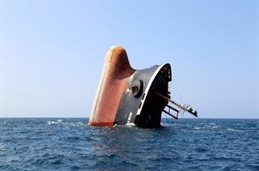
Leading international shipping organizations—including ICS, BIMCO, ECSA, INTERCARGO, and INTERTANKO—have condemned the recent escalation of violence in the Red Sea, where attacks on commercial vessels have killed three mariners and injured others, according to European naval authorities.
"In recent days, two ships have now been attacked in the Red Sea. One has sunk and the other has suffered extensive damage," the joint statement said of the latest developments in the Red Sea. "These vessels have been attacked with callous disregard for the lives of innocent civilian seafarers, and as an inevitable but terrible consequence, seafarers have been killed."
"We join with the IMO Secretary General in his denunciation of the attacks and we call on all stakeholders to uphold the safety and security of innocent civilian seafarers as they pass through this vital waterway, carrying the food, goods and energy the world's economy relies upon," the shipping groups added.
ICS, BIMCO, ECSA, INTERCARGO, and INTERTANKO noted that this tragedy illuminates the need for nations to maintain robust support in protecting shipping and vital sea lanes.
"We urge that the international standards of freedom of navigation and the sanctity of human life are recognised, upheld, and defended," the joint statement added.
Yemen's Houthi rebels have resumed attacks on commercial vessels in the Red Sea, marking a sharp escalation in a maritime campaign that began in late 2023.
In early July 2025, the group sank two cargo ships—Magic Seas and Eternity C—and killed several crew members, underscoring the vulnerability of global shipping lanes despite months of international military intervention.
The Houthis, backed by Iran, claim the attacks are in solidarity with Palestinians amid the Israel-Hamas conflict. Their operations have disrupted a trade corridor that handles US$1 trillion in annual commerce, forcing many vessels to reroute around the Cape of Good Hope in Africa.
The renewed violence threatens a fragile ceasefire with Washington and raises concerns about maritime security, regional stability, and the broader geopolitical fallout from the war in Gaza.



